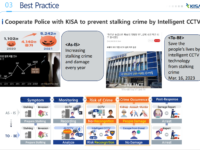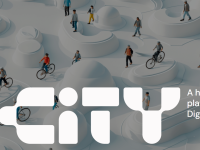Wildfires is one of the main causes of blackouts in Brazil. To monitor the thousands of Brazilian Transmission Lines (TLs), ANEEL created the GGT System, which consists of a tool that uses Artificial Intelligence and satellite images processing to preventively inspect the maintenance of TLs against wildfires. With the GGT System, there was a 89% reduction in shutdowns caused by wildfires, representing a great improvement in the reliability of the electricity offered to the Brazilian population.
Innovation Tag: Digital and Technology Transformation
The project proposes a system for extracting and analysing information from the medical records of breast cancer patients, using artificial intelligence. This would support research, personalised medicine and health decision-making, benefiting clinicians and regional authorities. This provides an automated alternative to accelerate translational research, promote personalised medicine and improve the efficiency of health services.
Incheon City initiated a demonstration project utilizing AI technology to assist tourists and multicultural citizens in effectively communicating their symptoms to healthcare professionals. Mediark Inc. was chosen for this project through a public tender. The city supports the AI technology's development and demonstration costs, collaborating with Mediark Inc., the Incheon Medical Association, and the Pharmaceutical Association. Mediark Inc. introduced the SIMTOMI app in November 2023.
The Virtual Assistant project targets every person that may come to require information on how to access and make use of Portuguese Public Services. It takes the shape of an AI driven ChatBot (powered by ChatGPT3.5), designed on Azure Cloud AI architecture as a public/private partnership. Our Innovation demonstrates a clear use case for AI within the public sector, and it was developed to address effectiveness, efficacy and quality issues inherent to the provision of public services.
With the aim to help potential victims recognize and avoid danger before falling victim to stalking crimes, the KISA and the NPA collaborated to develop a relevant technology. It is technology capable of detecting precursors of stalking crimes. It provides warning to potential victims and alert the police, aiding in the apprehension of the offender before any harm is done. By adopting this technology to over 1,200 high-risk stalking victims, Korea has successfully safeguarded from stalking crime
vCity is a human-centric platform for urban digital twins, with the goal of improving life quality within the city by assisting urban planners make evidence-driven urban decisions. vCity's innovative approach combines 1) simulation by designing virtual replicas of the cities, 2) what-if scenario tools in urban planning and 3) getting the "pulse" of the city from digital platforms for citizen participation.
The study integrates Artificial Intelligence (AI) techniques, and a digital twin methodology to process and interpret urban data streams derived from citizen interactions with the city's coordinate-based problem mapping platform. Using an interactive GeoDataFrame within the digital twin methodology, dynamic entities facilitate simulations based on various scenarios, allowing users to visualize, analyze, and predict the response of the urban system at
GovText is a Natural Language Processing (NLP)-based text analytics platform developed by GovTech’s Data Science and Artificial Intelligence Division (DSAID). The platform is designed to help public officers efficiently analyse unstructured textual data. In particular, it offers a web portal tool and a model-hosting platform, which allow:
Topic modelling with interactive presentation of results
Text summarisation
Development, deployment, and hosting of customised AI models
Prediction of use…
The Singapore Land Authority (SLA) embarked on a groundbreaking project to create the world's first digital twin of a country. This initiative, known as Virtual Singapore, involved the use of cutting-edge technology to develop a highly detailed 3D representation of the entire island nation. The project used laser-scanning aircraft and vehicles equipped with lasers to capture terrain and surface information, creating a comprehensive digital model of Singapore. The digital twin encompasses…
SignAvatar's long-term vision is to enable real-time sign language generation, opening doors to multiple applications such as TV, Social Media, Video calls, Online courses, and many applications in the public sector.
Our first product is TransportSign, a system for auto-generated service information in Sign Language for Airports and Train Stations. By transforming audible announcements and on-screen text into SL, we enable more than 460 Million Deaf individuals around the world to travel freely





